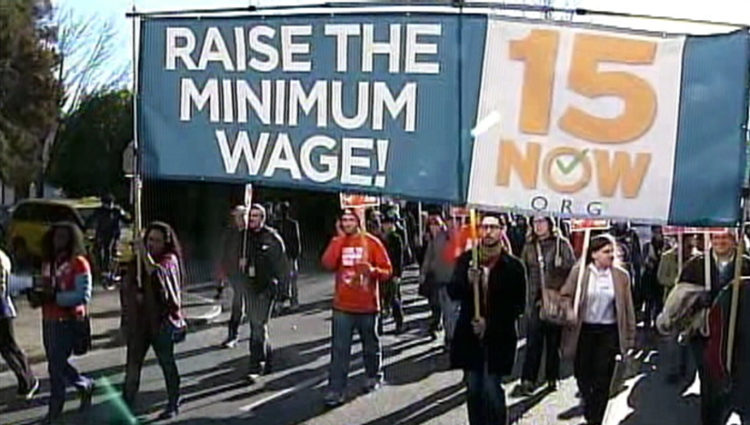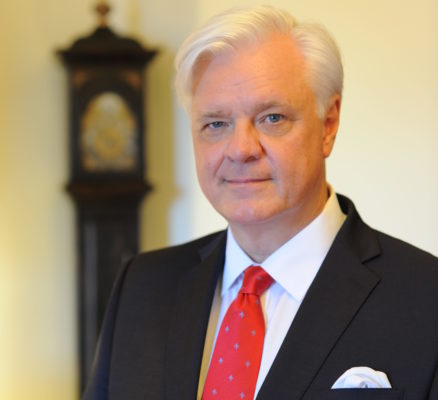The economy and coronavirus pandemic were two of the top issues for voters in the 2020 election, according to exit poll surveys. Notably, 52% of voters said controlling the pandemic was more important, even if it hurts the economy. But what if we didn’t have to choose?
In communities where masks were mandated, consumer spending increased by 5% on average, showing that a safety rule can stimulate economic growth as well, according to a new study from the Olin Business School.
Researchers found the effect was greatest among non-essential businesses, including those in the retail and entertainment industries—such as restaurants and bars—that were hit hard by the pandemic.

“The findings exceeded our expectations and show that we can have a strong economy with strong, commonsense public-health measures. Mask mandates are a win-win,” said Raphael Thomadsen, professor of marketing and study co-author.
Thomadsen, along with Olin’s Song Yao, Nan Zhao and Chong Bo Wang, analyzed the impact of social distancing and mask mandates on both the spread of COVID-19 and consumer spending. They used cellphone location data to track the degree of social distancing in nearly every county in the U.S. and compared that with community voting patterns, coronavirus infection rates and consumer spending rates.
The researchers found social distancing has a large impact on reducing COVID-19 spread, while the evidence on mask mandates is mixed. But while social distancing reduces consumer spending, mask mandates has the opposite effect. They also found that social distancing decreased in communities with mask mandates, magnifying the positive effect on spending.
Feeling safer to spend

“Preventive measures such as social distancing and facial masks should be considered as pro-business,” said Yao, associate professor of marketing. “When people feel safer to spend, or more importantly, when the pandemic is kept at bay, the economy is more likely to have a quick recovery. Not to mention the lives that will be saved.”
Perhaps not surprising given the political lines drawn over masks, they also observed that political affiliation had a significant impact on social distancing. Even after controlling for local characteristics such as the population density, income and other demographics, counties that voted for President Donald Trump in 2016 engaged in significantly less social distancing than counties that voted for Hillary Clinton.
“If the entire country had followed low levels of social distancing seen in Trump-supporting areas, we estimate there would have been 83,000 more American deaths from COVID to date, which represents a 36% increase over the current death count of 225,000 Americans,” Thomadsen said.
They estimate the tradeoff would have been a relatively small boost in the economy. Consumer spending dropped $605.5 billion from April to the end of July, compared with the same time last year. The country would have recovered $55.4 billion, or approximately 9%, had all counties remained as open as the most pro-Trump areas.To put it in more dramatic terms, Thomadsen said this means that opening up is only a reasonable policy if one values lost lives at roughly $670,000 each or less. This value was determined by dividing the hypothetical $55.4 billion boost to the economy by the 83,000 lives lost in this scenario.
“The calls to open up the economy come with huge costs of COVID spread and only modest benefits of increased economic activity,” Thomadsen said. “Opening the economy before getting the virus under control only makes sense if you put a very low value on life.”




 Gorton’s 2010 book, Misunderstanding Financial Crises, Why We Don’t See Them Coming, provides historical context for understanding the 2008 financial crisis and why economists and policy makers need to recognize that crises are inevitable and inherent to our financial system. To those who thought that a crisis could not happen again in the US after the Great Depression, Gorton is blunt: “That economists did not think such a crisis could happen in the United States was an intellectual failure.”
Gorton’s 2010 book, Misunderstanding Financial Crises, Why We Don’t See Them Coming, provides historical context for understanding the 2008 financial crisis and why economists and policy makers need to recognize that crises are inevitable and inherent to our financial system. To those who thought that a crisis could not happen again in the US after the Great Depression, Gorton is blunt: “That economists did not think such a crisis could happen in the United States was an intellectual failure.”





